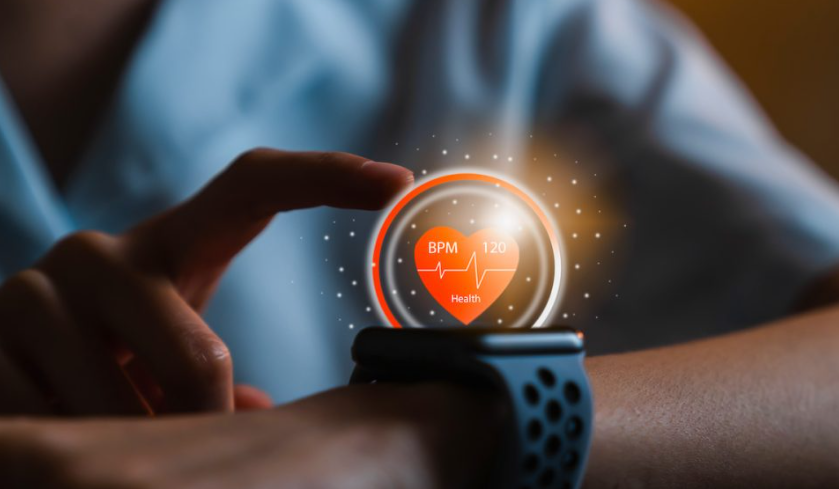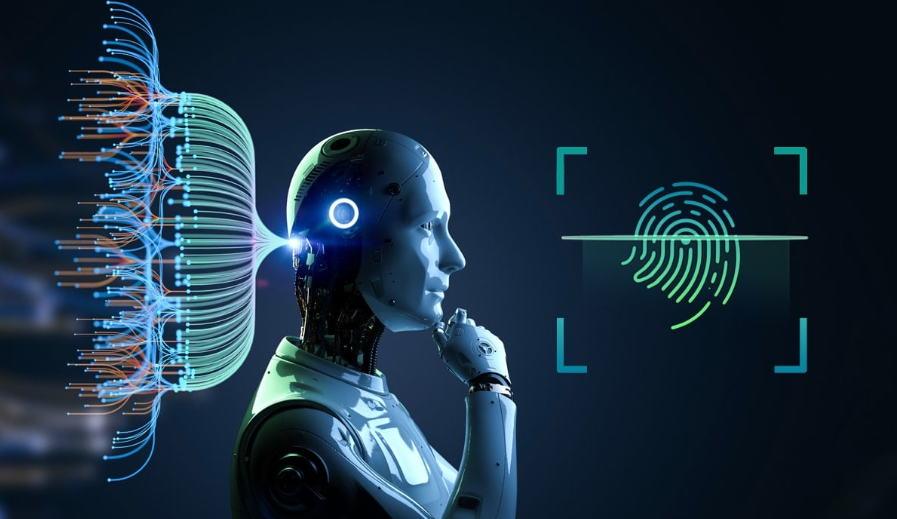Explore how AI-powered biometric monitoring devices enhance workplace safety by tracking health data, predicting risks, and ensuring real-time alerts.
The hectic pace of today’s lifestyle has never made it as crucial—and convenient—to be in command of your well-being. Thanks to AI-based biometric monitoring devices, individuals can now track their vital functions, optimize their fitness routine, and even detect possible health issues early on, before they turn into real crises. These next-generation devices combine artificial intelligence and biometric sensors to offer real-time, customized feedback, heretofore only available in hospitals. This piece delves into the technology that powers these devices, their potential, real-world uses, and how to choose the most appropriate one for you.
What Are AI-Powered Biometric Monitoring Devices?
AI-driven biometric monitoring wearables are wearable or portable gadgets utilizing advanced sensors and artificial intelligence to measure, analyze, and read biological signals. Such signals include heart rate, blood oxygenation, sleep movement, stress, and even more advanced metrics like heart rate variability (HRV) or electrocardiogram (ECG) recordings. The AI engine analyzes this data to provide actionable feedback, predict health trends, and give personalized recommendations.
Unlike traditional fitness trackers, these devices do not only monitor steps or calories. They apply machine learning to understand your personal physiology, adapt to your habits, and provide customized recommendations. For example, one device would be capable of recognizing irregular heart rhythms and suggesting a visit to the doctor or breathing exercises when it detects high levels of stress.
Why They Matter
In 2025, health consciousness has never been greater, with people seeking preventive ways to manage their wellbeing. In a recent study, the global wearable medical device market is anticipated to grow to $70.5 billion by 2030, driven by enhancing AI and sensor technology. These gadgets enable people to take charge of their health, offering a level of convenience and accuracy that’s transforming lives.
How AI Improves Biometric Monitoring
1. Real-Time Data Analysis
AI algorithms process vast amounts of biometric data in real time, identifying patterns that humans might miss. For instance, a smartwatch might detect subtle changes in your heart rate during sleep, flagging potential issues like sleep apnea.
2. Predictive Health Insights
According to historical data, AI is able to predict potential health dangers. For example, devices such as the latest Fitbits are able to forecast peaks of stress depending on the movement you do and the quality of sleep you have, and request that you take action.
3. Personalized Recommendations
AI makes personalized recommendations for you. While you are training for a marathon, your device may suggest modifying your sleeping schedule or intensifying your exercises according to recovery patterns.
4. Ongoing Learning
The more you use them, the smarter they become. Machine learning helps them learn about your life and get better at their suggestions over time.
Example in Real Life
Take the case of Sarah, age 34, marketing consultant with a hectic life. She started putting on an AI-driven smart ring that tracks sleep, stress, and activity. The ring sensed that she was perpetually stressed during the afternoons and suggested short mindfulness sessions. Within weeks, Sarah experienced better focus and energy, thanks to the device’s personalized tips.
Key Features of Modern AI-Driven Biometric Devices
1. Careful Health Monitoring
Modern devices monitor a wonderful range of metrics:
- Heart Rate and HRV
- Blood Oxygen (SpO2)
- Sleep Analysis
- Activity and Calorie Tracking
- ECG and Blood Pressure
2. Seamless Integration
Most devices are linked to smartphone apps so you get to view detailed reports or export data to medical professionals. For example, Apple Watch’s Health app is integrated with electronic health records so it’s simple to consult a physician.
3. Non-Invasive Monitoring
Unlike traditional medical equipment, the devices are non-invasive, thus ideal to use daily. Wearables like the Oura Ring or Whoop strap are discreet yet powerful.
4. Voice and Chat Interfaces
Some devices, like those that support Grok 3’s voice mode (on iOS and Android apps), permit you to interact with your health data without having to use your hands.

Advantages of AAI-powered biometric monitoring devices
- Early Health Issue Detection
- By continuous monitoring of vital signs, AI is able to detect deviations early.
- Enhanced Fitness Performance
- Elite athletes use these devices to optimize training.
- Improved Mental Well-being
- Stress and sleep tracking enable tracking of mental health.
- Simplicity to Use and Access
- With real-time feedback on your phone or wrist, you don’t need to visit the doctor as much to monitor basic health metrics.
Personal Story: John’s Journey
John was 45 and a dad who struggled with high blood pressure but didn’t like visits to clinics. He purchased an AI-based smartwatch that checked his blood pressure. The watch would alert him to surges when he was at work, leading him to make lifestyle changes like daily exercise and more hydration.
Top AI-powered biometric monitoring devices in 2025
- Apple Watch Series 10
- Features: ECG, blood oxygen, sleep monitoring, fall detection, and AI-driven health insights. Best For: iPhone owners Why It Sits Well: Seamless integration with Apple Health and advanced AI.
- Oura Ring Gen 3
- Features: Sleep monitoring, HRV, body temperature, and stress monitoring. Best For: Discreet wear Why It Stands Out: Learns your baseline health metrics for hyper-personalized insights.
- Fitbit Charge 6
- Features: ECG, SpO2, stress management, and Google integration. Best For: Budget-conscious users Why It Stands Out: AI-fueled features like Daily Readiness Score.
- Whoop 4.0
- Features: Strain tracking, recovery scores, and sleep coaching. Best For: Athletes Why It’s Special: AI-driven training adjusts to the intensity of your work-out.
How to Choose the Best Device for You, AI-powered biometric monitoring devices
Define Your Goals
Heart health? Look for ECG and BP monitoring.
Fitness? Monitor strain and recovery.
Sleep? Get advanced sleep analysis.
Consider Comfort and Design
Watch, ring, or chest strap?
Battery life?
Make Sure It’s Compatible
Compatible with your phone or platforms?
Budget Appropriately
$100 to $500+ depending on features
Consult Medical Professionals
Use FDA-certified devices if needed
- Optimizing Your Device’s Potential
- 1. Wear It Regularly
- 2. Act on Insights
- 3. Keep It Updated
- 4. Share Data with Professionals
- 5. Pair with Lifestyle Changes
- Challenges and Considerations
- 1. Data Privacy
- 2. Variability of Accuracy
- 3. Price
- 4. Over-Dependence
The Future of AI-Powered Biometric Monitoring
- Wearables may soon:
- Diagnose diseases like diabetes or depression
- Offer real-time health coaching with AI assistants
What’s Next?
Imagine a device predicting flu outbreaks or suggesting meal plans based on blood sugar. With AI tech advancing, it’s closer than you think.
Conclusion
AI-powered biometric monitoring devices are not just gadgets—they’re wellness partners. They help prevent disease, guide fitness, and improve daily life. Choose the right one, understand its feedback, and live better.
Ready to take the reins? Start by setting your health goals, researching best devices, and investing in one that fits your lifestyle. Your body will thank you.

